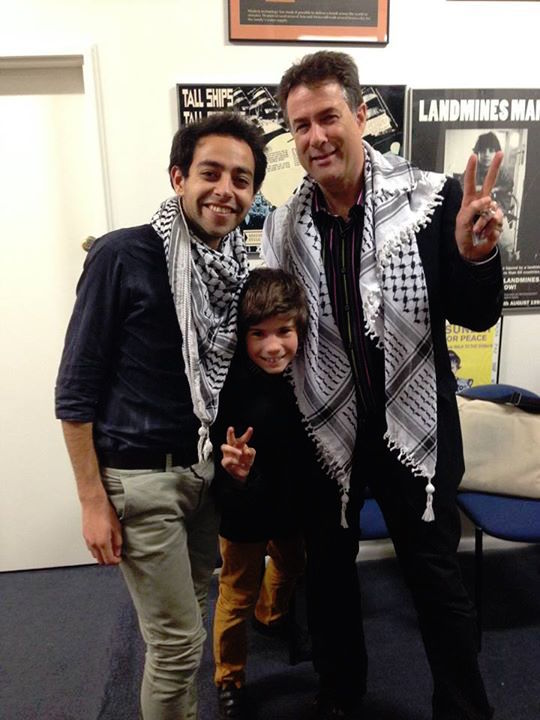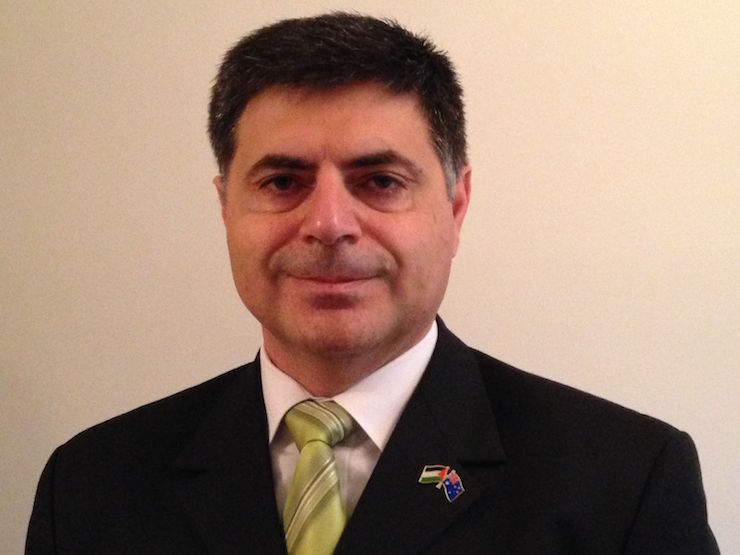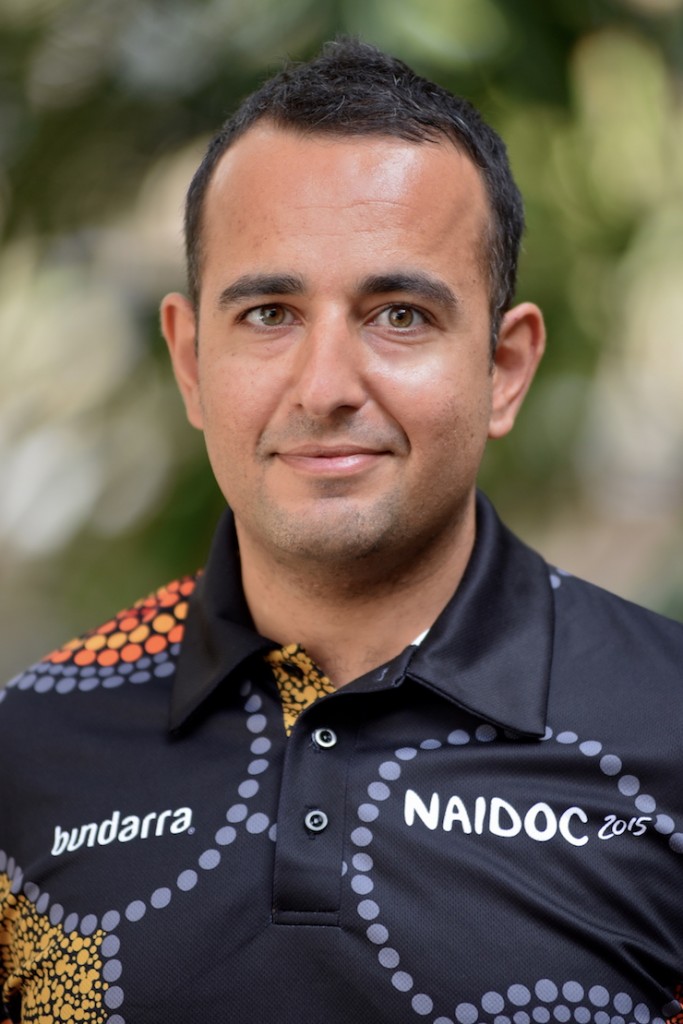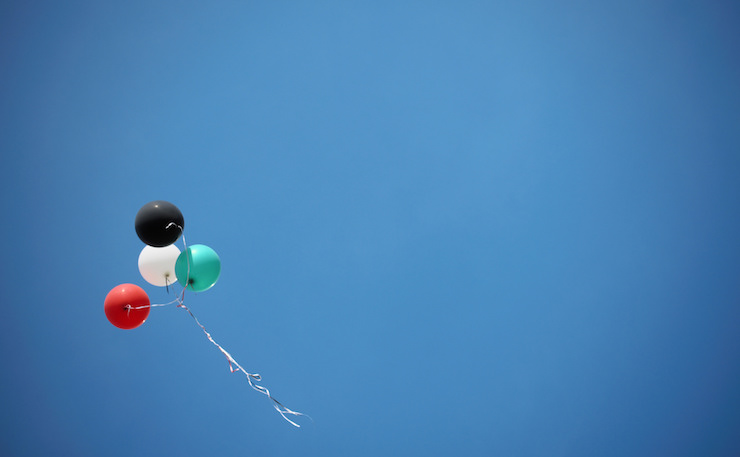A momentous but also a deeply personal event, four Palestinians living in Australia told Michael Brull what al-Nakba, their nation’s ‘catastrophe’, means to them.
Australia Day marks the date of the colonial invasion by the First Fleet. Thus, while many Australians celebrate the day, many Aboriginal and Torres Strait Islander peoples mourn it as Invasion Day or Survival Day. The creation of Australia meant their dispossession, and the devastation of their peoples and cultures.
Likewise, Israel’s founding is celebrated on Yom Ha’atzmaut. This is held on the Jewish calendar’s equivalent of 14 May, the anniversary of the day in 1948 when Israel declared independence. On 15 May, Palestinians mourn Nakba Day. Like Aboriginal and Torres Strait Islander peoples, the creation of Israel meant the dispossession of Palestinians from their homeland. To commemorate the Nakba this year, I asked four Palestinians to reflect on what Nakba Day means to them.
Samah Sabawi: ‘Our people will not be silenced nor will we normalise oppression’
Nakba is not an isolated incident in history. Not a single memory that stands distant and frozen on the pages of time. Its commemoration is a reminder of the beginning of an ongoing crime. It forces us to reflect on a relentless inescapable reality. We carry it in our collective conscience, a precious pain that cannot be extracted from our identity. We are Palestinians and we cannot forget what has not yet ceased to be.
We cannot forget the 1948 massacre of Deir Yassin, nor wash away from our eyes the images of scattered children limbs in Gaza in 2014. Same crimes, same excuses and same ideology. Same criminals, same rhetoric and same international complicity. But we know that no perfect crime can stand the scrutiny of time. So we carry our Palestine in our hearts and in our living memory.
Sixty-eight years ago Palestine was erased from the map, but no map is set in stone. Maps have no heart and soul. Maps don’t reflect the sanctity and beauty of life. So let them keep their map, and let us look erasure in the eye. We tell our occupiers that we are here and it is here that we will stay. Demolish our homes, steal our land, detain our children…oh … but if only they can leave our children alone. Here, in the native place of our existence, on the soil of our ancestors, we will survive and we will transcend their brutality with infinite persistence. With beauty and resistance. So let them keep their map and draw the lines as they please. In the end, lines on pages do not determine our people’s destiny.
We must not speak of Nakba in order to turn back the clock and drown in the sweet nostalgic yearnings for what once was Palestine. We must not speak of Nakba for vengeance; we cannot recreate the past nor erase their presence. Time passes and leaves its mark on the order of things. The world moves forward and the clock never turns back. We must speak of our Nakba because without remembering the past and acknowledging the ongoing crimes of the present we will never find our way to a better future.
We must teach our children that peace cannot be without justice, because a peace without justice is the silent subjugation of the oppressed, and our people will not be silenced nor will we normalise oppression.
Despite the shackles of occupation, the tyranny of exile and the cruelty of dispossession, we will remain free, vocal, defiant and hopeful. We will “cultivate hope” in seeds we plant in places of uprooted trees, in the prose and verses of our poetry, in homes we build from the rubble after their demolitions, in songs of love and passion, in strokes of oil on canvas and in prayers in mosques and churches.
And there, within the suffocating spaces between their towers, walls and checkpoints, we will teach our children how to dance to the rhythm of life.
We are Nakba survivors, and we survive Nakba every day.
Samah Sabawi is a Palestinian Australian poet and playwright. She is a policy advisor to Al-Shabaka, the Palestinian policy network

Fahad Ali: ‘We’re still here’
Some among us like to think that we, as Palestinians, have some claim or ownership over Palestine.
But this is not true. Palestine has ownership over us. Palestine calls to us, insists upon our return. We are the children of Palestine.
Forget rockets and knives and stones – the greatest act of resistance that the Palestinian people have ever committed was to exist, and to continue to exist. And here I am, the grandson of Palestinian refugees, living in Australia. A proud Palestinian.
The history of injustice was written on our bodies. With our existence, we bear witness. Another settlement built. We bear witness. Another child killed. We bear witness. Another house demolished. We bear witness. Since 1948 we have borne witness against iniquity, and we will continue to bear witness.
Ethnic cleansing, exile, and diaspora has not yet muted the blood of Palestine. That, of course, is the critical failure of the Nakba – a failure that will come back to haunt the Zionist project. We’re still here.
With the inconvenient fact of an extant Palestinian people, Zionism was always going to collapse. Zionism and its adherents are doing everything they can to forestall this inevitable conclusion, from an ongoing ethnic cleansing to the very rewriting of history. But while Zionism may be content in the delusion that Palestine does not exist, our collective being is an ink stain on the pages of the Zionist epic, threatening to spoil the entire work.
Relentless, they tear at the pages, hoping to find one unmarked. Tearing out pages, one by one, faster and faster, until they realise that the ink has seeped the whole way through. Their project, their rewriting of history, lies in ruin on the floor. Zionism is dead, having consumed itself in blind indignity and messianic passion.
“The arc of the moral universe is long, but it bends towards justice.”
The two state solution has perished. There was a time, perhaps, where it could have been put into practice, but it has always been, as a concept, infinitely unjust.
There will be a single state in historic Palestine.
At this moment in history, we are faced with a new fascism. Anti-Semitism is again a force in Europe, and anti-Arabism is spreading a dark hand across the globe. Imagine – a proud unity of Jews and Arabs, committed to the best values of humanity. A single, democratic state for all its citizens: Jewish, Arab, and otherwise. Imagine! Think of the future we could build together, committed to peace, justice, and freedom.
There is a Hebrew expression for this kind of project: tikkun olam – repairing the world. An Arabic one too, often misinterpreted: jihad – to do what is right, to struggle against injustice.
What does the Nakba mean to me? The injustice of the Nakba, still palpable some 70 years later, has crossed generations, borders, and beliefs. It is universalising. The lesson of the Nakba and the ongoing intifada have taught us that the only guarantee against injustice is what we, as one people, do with our own hearts and hands. From Deir Yassin to Detroit, for women, for the poor, for gay, lesbian, and transgender people, and for all those who live in fear or under persecution, the Nakba is a lesson in unity in the face of injustice. And tomorrow, we will stand together on the land of Palestine.
Fahad Ali is a Palestinian activist and student based in Sydney, and the founder of Labor Friends of Palestine.
 Bassam Dally: ‘You realise that your Nakba has never stopped’
Bassam Dally: ‘You realise that your Nakba has never stopped’
The events leading to the loss of Palestine on the 15th of May 1948, and commemorated in the Nakba day, are still influencing the lives of Palestinians everywhere. The ongoing “ightiṣāb”: “rape” of the land, heritage and culture has affected my own life, as a Palestinian citizen of Israel, well before I was made aware of those events or was able to comprehend the extent of the 1948 occupation of Palestine. As a child you hear about the relatives in refugee camps in Lebanon and Jordan and you hear the heroic stories of survival against all odds. You hear about the families, living in the periphery of your village, who sought refuge from other villages that were destroyed by Jewish terrorist groups in 1948, like families from Amqa, Kwekat, Ghabsia, or Iqrith. You drive by these villages and you notice that they have new Jewish names and the Arabic names have disappeared. You are forced to stop all of your activities on that memorial day, to remember the loss of Palestine, and watch the Israeli Jews celebrate their conquest. And you realise that your Nakba has never stopped. The erosion of your heritage, your history and even your ruins is ongoing, making you feel like a foreigner in your own home, disconnecting you from your roots.
You persevere, you struggle and you exert your presence and identity by declaring that you “belong to the land”. A land which you cannot access because you fall under the “absent present” law drafted especially to dismiss you and your family’s claims. You watch your grandfather’s orchards being cleared of the fig and olive trees. New shopping centres and neighbourhoods are being built to house new Jewish migrants, speaking in foreign tongues exercising their “birth right” in your father’s birth place. Your school is poor, your village is underdeveloped, your employment opportunities are limited and the only thing you can do is to deepen your roots, because “existence is resistance”. Your culture, religion and customs are ridiculed. You are made to feel inferior to a new, “modern”, Western, imported culture.
Growing up in such an environment makes you bitter, confused, and anxious about the present and the future. Your loyalty is demanded. Your acquiescence may help you get ahead in life. You are bullied to be a “Good Arab”, not a Palestinian. You are supposed to accept that you are inferior, to be thankful for what the government allocated to your community. To ignore the injustice, the inequality and the 50 basic laws that discriminate against you. You look inwards for strength, family support and your instinct to live. You get solace from listening to Mahmoud Darwish’s poem “We have on this earth a life worth living”.
Your reflections are suddenly interrupted by the Israeli army radio news flash. An Israeli politician declaring, with much pride and confidence in his voice, “Never Again”.
Bassam Dally is an Australian-Palestinian advocate and Professor at the Centre for Energy Technology at the University of Adelaide. He is co-founder and executive member of the Australian Friends of Palestine Association and the Vice-President of the Australia Palestine Advocacy Network.

Ryan Al-Natour: ‘I did not need to consult a guide to know about my dispossession’
While I write about what the Nakba means to me as a Palestinian living in Central Queensland, I have various thoughts, feelings and emotions going through my mind. The way I commemorate the Nakba in my ancestral land varies from the way I think about my life on lands in which Aboriginal peoples were dispossessed – much the same way my people were from Palestine.
Every year, the Nakba anniversary arrives and we Palestinians are reminded of our colonisation and dispossession. When I was an undergrad, I remember reading a number of daunting hasbara guides which were of the view that Palestinians didn’t exist, and that we left our homes voluntarily. Ignoring the idiocy of this view, I can confidently say we did exist, we continue to exist, and most of us were coerced into leaving our homes. Unlike a number of proponents of the Zionist narrative of the Nakba, which happens to be a celebration of their “Independence”, I did not need to consult a guide to know about my dispossession. Like other Palestinians, I simply asked my father, aunts and uncles about the horrors they witnessed in 1948.
We were “not a land without people for a people without a land” – as prominent in the Zionist narrative of our dispossession. If this was the case, I would not exist and the readers of this collection would forever wonder who wrote these words.
We often think of the Nakba as something that happened in the past. There is an ongoing Nakba that takes place every year and whether we Palestinians live in our homeland or in the diaspora – we feel it. Al-Nakba is not only a reminder of our colonisation and dispossession, but also a reminder of how the whole world watches a fanatical, racist colonial structure further colonise our people and lands, while trying to convince the world that they are victims. Like other colonies, the state of Israel simultaneously projects settler-colonial violence while portraying itself as a moral Westernised entity.
Since leaving Palestine in 1999, there are several colonial events that have reflected the ongoing Nakba. A racist wall now snakes its way through the West Bank, more settlements have encroached on stolen lands, the Dead Sea continues to be violated, my cousins back home continue to live with post-traumatic stress disorder, and my other cousins in the diaspora require our coloniser’s permission to return to our ancestral homes. In the past decade, our colonisers have massacred defenceless civilian populations in the names of peace and self-defence, uprooted several olive trees, and have continued to imprison several of our men, woman and children within Israeli dungeons. Many of our brothers and sisters in camps are still waiting to return home. The Nakba did not only begin in 1948, it continues through our ongoing colonial dispossession from a racist entity that harbours weapons of mass destruction.
While the Nakba is a reminder of our colonial dispossession, or what perhaps some of our Aboriginal and Torres Strait Islander brothers and sisters here term “Invasion Day”/ ”Survival Day”. It is ongoing and every Nakba anniversary continues to be a day of mourning.
Ryan Al-Natour works at Central Queensland University on a project examining Indigenisation of the curriculum. He has a PhD in Sociology and Cultural Studies and has background lecturing in Social Sciences and working in Aboriginal and Torres Strait Islander tertiary education. He is originally from Ramallah, Palestine.
Donate To New Matilda
New Matilda is a small, independent media outlet. We survive through reader contributions, and never losing a lawsuit. If you got something from this article, giving something back helps us to continue speaking truth to power. Every little bit counts.





